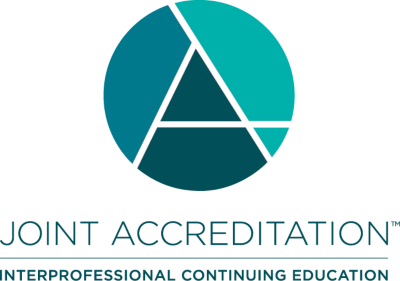Designing Innovative High Quality Foundational Interprofessional Curriculum That Meets Best Practice Accreditation Standards (Max 30 participants)
Monday, August 19, 2019, 10:15 am - 11:15 am
Greenway D Room
Theme: Quality Interprofessional Education and Accreditation
Max 30 participants
Learner Outcomes:
This workshop is firmly anchored in the Nexus 2019 conference theme “Quality Interprofessional Education and Accreditation.” After participating in this workshop, participants will develop new knowledge and skills to help their home institutions, design innovative, high-quality foundational interprofessional educational curriculum. Specifically, participants will be able to:
1. Determine appropriate tools for student assessment;
2. Judge effective strategies for collaborating with clinical practice settings;
3. Design curriculum that meets the best practice accreditation goals outlined by the newly released “Guidance on Developing Quality Interprofessional Education for the Health Professions” (Henceforth “the guidance document”)
Structure and Content:
1. UIC’s Foundations of Interprofessional Collaborative Practice Course (20 minutes): The workshop will open with a high-level overview of the foundational interprofessional educational course developed by UIC in partnership with Shirley Ryan AbilityLab's Pain Management Center, a recognized national leader in interprofessional chronic pain management. This course was developed with the goal of being well aligned with the guidance document and this overview will illustrate the key points of alignment. The presentation will be structured around the three unique focus areas of the workshop leaders: educational design; assessment; and partnering with practice settings. Participants will have the opportunity to watch some of the unique, high-fidelity interprofessional collaborative practice content developed for this course. The goal of this overview is to help participants have a common framework and knowledge base as they start their small-group active learning activities.
2. Small-Group Design Session (20 minutes): Each participant will select one of the three workshop’s focus areas: educational design; assessment; or partnering with practice settings. Note: To ensure productive small-group sessions these will be capped at ten participants per focus area. Once situated in their focus area small-groups, participants will engage in focused discussion and reflection facilitated by the corresponding focus area workshop leaders. The goal of the small-group sessions is to explore the opportunities and challenges of educational design/assessment/partnering with practice settings, in order to create innovative, high quality foundational interprofessional educational curriculum anchored firmly in the guidance document.
3. Small-Group Report-out and Synthesis (20 minutes): Facilitated by the workshop leaders, each of the groups will report out their key takeaways and participants will then engage in a workshop discussion that generates integrated workshop takeaways covering each of the three focus areas, and that participants can bring back to and apply in their home institutions.
Interprofessional Continuing Education
This activity has been planned and implemented by the National Center for Interprofessional Practice and Education. In support of improving patient care, The National Center for Interprofessional Practice and Education is jointly accredited by the Accreditation Council for Continuing Medical Education (ACCME), the Accreditation Council for Pharmacy Education (ACPE), the American Nurses Credentialing Center (ANCC) and the Association of Social Work Boards (ASWB) to provide continuing education for the healthcare team. The intent is to provide accreditation and continuing education credit for this workshop. For questions regarding continuing education, please email ipceapps@umn.edu.




